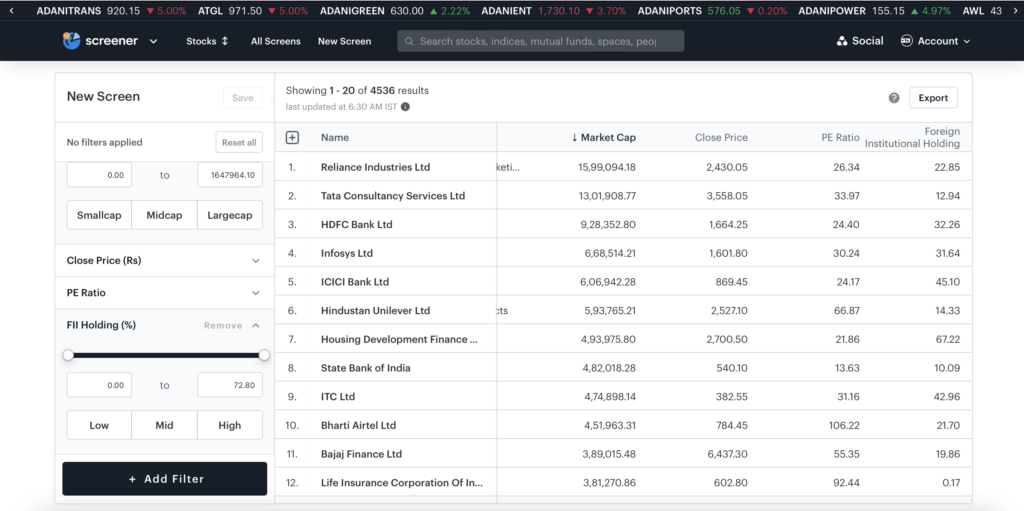In today’s interconnected world, no country can function in isolation. Geopolitical ties and investments greatly influence a country’s development. Countries can attract foreign investments through various means and routes, the most popular method being the FDI.
But what is FDI? Is it the same as an FPI or an FII? Can FDI influence GDP? Should a company encourage FDI? Let’s read further to find out!
You will Learn About:
What is FDI?
FDI stands for Foreign Direct Investment. It can be described as an investment exchange between two parties from different countries to establish and nurture a lasting interest. In simple terms, FDI can be defined as investments made by a foreign company or investor in another country with an aim to exchange resources and technology and gain profits.
Such investments are long-term and can significantly impact a country’s growth. However, investors in many countries may be subjected to heavy scrutiny and regulations to safeguard domestic investments.

FDI in India
The economic reforms of 1991 revolutionised the country and opened the gates to attract foreign investments in India. There are two defined routes for FDI in India –
- Automatic route
- Government route
Under the automatic route, foreign investors require no authorised signatory or approvals. The investors are free to invest in any company they may deem fit. However, the RBI must be informed of the investment amount within a certain time frame. On the other hand, the Government route will require prior approvals and due processing. In addition, other conditions defined under the consolidated FDI policy will be applicable.
Further, it must be noted that FDI rates are not uniform across industries and sectors. In certain sectors, 100% FDI is allowed. For instance, agriculture and animal husbandry, plantation, mining, and broadcasting all fall under the 100% FDI category. In other industries, the percentages can vary, going as high as 51%.
In a few sectors, FDI is prohibited irrespective of the route. A few industries in this category include atomic energy generation, lotteries, gambling and betting businesses, Nidhi companies, and even tobacco companies. The prohibition of FDI in such industries is to support domestic investors and maintain national integrity. For instance, the defence sector’s FDI limits are 49%.
New FDI policy
India’s direction on FDI is embodied in the Consolidated FDI Policy circular of 15th October 2020. However, the policy sees amendments from time to time-based on several domestic and geopolitical factors. Let’s have a look at a few important amendments.
- Any company whose country shares a border with India or where the beneficiary is situated in a different country or is a foreign national will be able to invest only under the Government route.
- If a transfer of ownership (in an FDI deal) benefits any country that borders India, then the same shall require Government approval (India shares its borders with Nepal, Pakistan, China, Bhutan, Afghanistan, Bangladesh and Myanmar).
- Investors from other countries (under the new policy) may only inform the RBI after a particular transaction rather than involving the Government departments.
Note: Before the LIC IPO, the Government of India amended the FDI policy to allow FDI up to 20% through the automatic route in LIC.
Advantages of FDI
- FDI investments can considerably stimulate the country’s economic growth and development.
- As more industries and companies are formed and nourished, it leads to employment generation.
- There can be a fruitful exchange of technology, knowledge, and resources that may benefit the receiving country.
- Products and services developed through FDI can help boost exports.
- Helps open the economy and increases capital flow.
- There is increased forex change which is very important for a country’s development and visibility.
Disadvantages of FDI
- When forex and currencies value dwindle, it can significantly impact the progress of the receiving country.
- FDI can also hinder domestic investors.
- As investing is barred in certain sectors, it may be impossible to pursue those sectors. For instance, FDI is banned in the plantation sector. As a result, a beneficial technology that may have been developed in some other countries may not be available to India.
- Rules governing companies abroad may hamper growth or not be viable in India.
- Many third-world countries fear economic colonialism that may arise from international interference.
- Expropriation is a major concern (This is a process where external Governments, due to political compulsions, may take authority over the receiving countries’ assets).
FDI and FII difference
FDI is often confused with FII. But what is FII? Read below to know.
FDI can be defined as a foreign enterprise or country investing/ bringing capital inflow into a sector or industry of another country. However, FII is different from FDI.
FII stands for Foreign Institutional Investment. Unlike FDI, foreign investors buy stake/equity in a company/companies through the stock exchanges. For instance, a foreign company buying shares of Tata Motors through a registered exchange will qualify as FII.

It is important to note that these are short-term investments and generally concern themselves only with financial markets. They are entitled to capital gains (from their investments in stocks) and do not directly impact domestic activities.
Use Tickertape Stock Screener to find the percentage of FII holding in a company. Not just that, by visiting the asset page of your stock under ‘Holdings‘, you get all the details of shareholding in the company.

FDI vs FPI
| Difference on the basis of | FDI | FPI |
| Full form | FDI stands for Foreign Direct Investment | FPI stands for Foreign Portfolio Investment |
| Definition | FDI refers to investing in a foreign country’s business or sector | FPI refers to investing in financial assets of a foreign country |
| Type | Direct investment | Indirect investment |
| Investment is made in | Infrastructure, companies, and business | Financial instruments like stocks, etc |
| Nature | Long-term in nature | Short-term in nature |
| Investor type | Active investors | Passive investors |
| Impact | Can heavily impact GDP | Can impact capital inflow and secondary markets |
| Target | Chosen sector or industry | Financial markets |
| Entry and exit | Difficult to enter or exit | Comparatively easy to enter and exit |
| Volatility | The investment is usually pre-decided and set | Higher volatility as the investment is influenced by many direct and indirect factors |
| Advantages | This leads to the exchange of technology, resources, knowledge, intellectual capital, and more | FPIs support the growth of financial markets and domestic retail investors |
FDI examples in India
An example of FDI can be that of Amazon in India’s e-commerce ecosystem.
The company aimed to expand and sell its products directly to India’s large consumer base. However, India prohibits B2C e-commerce FDI, making the road difficult for Amazon. (B2B is allowed). Additionally, Amazon has been found to be violating several FDI rules, increasing scrutiny by Indian authorities. Furthermore, Amazon’s growing footstep can greatly hamper domestic players in the same field.
Another example can be Infosys, which has been a beneficiary of good FDI inflow in the information technology sector.
Conclusion
FDI is an investment made by a foreign country or enterprise in the businesses and industries of another country. It is paramount for a country’s development. FDI’s biggest advantage is that it exchanges tech and resources, which can push a country’s growth. But, it is to be noted that FDI has certain drawbacks too. For a country, it is particularly important to maintain healthy FDI levels while managing issues like forex and currency changes, domestic investors and more.
FAQs
Did you Like the Explanation?
Authored By:
I'm a Senior Content Writer at Tickertape. With over 5 years of experience in the financial industry and insatiable curiosity, I bring complex financial topics to life in a way anyone can understand. My passion for educating others shines through in my approachable writing style.
Pranay is a BMS Graduate from KC College who has cleared all 3 levels of the CFA exam and is currently working as an Equity Research Associate at Alpha Invesco.



